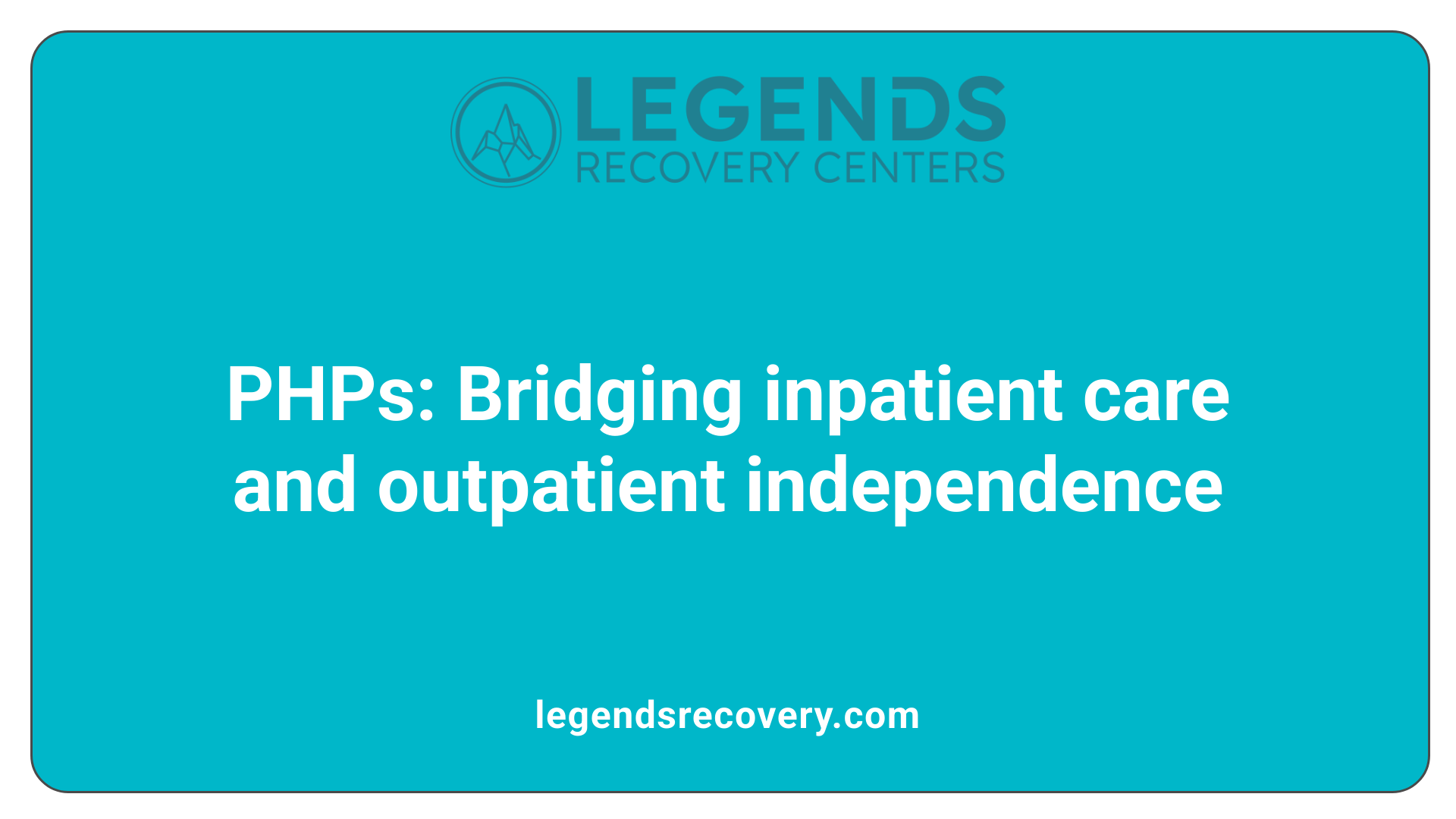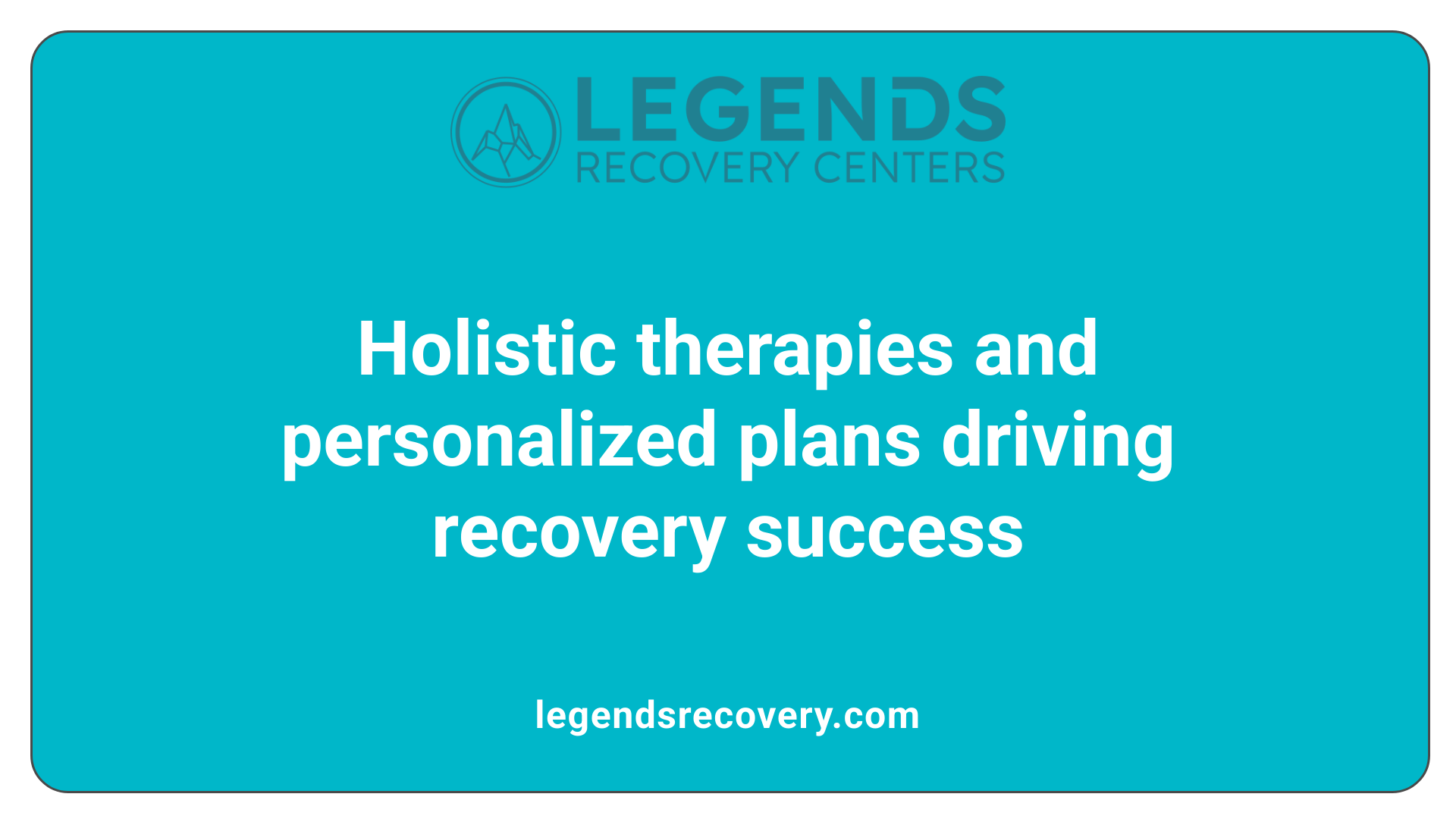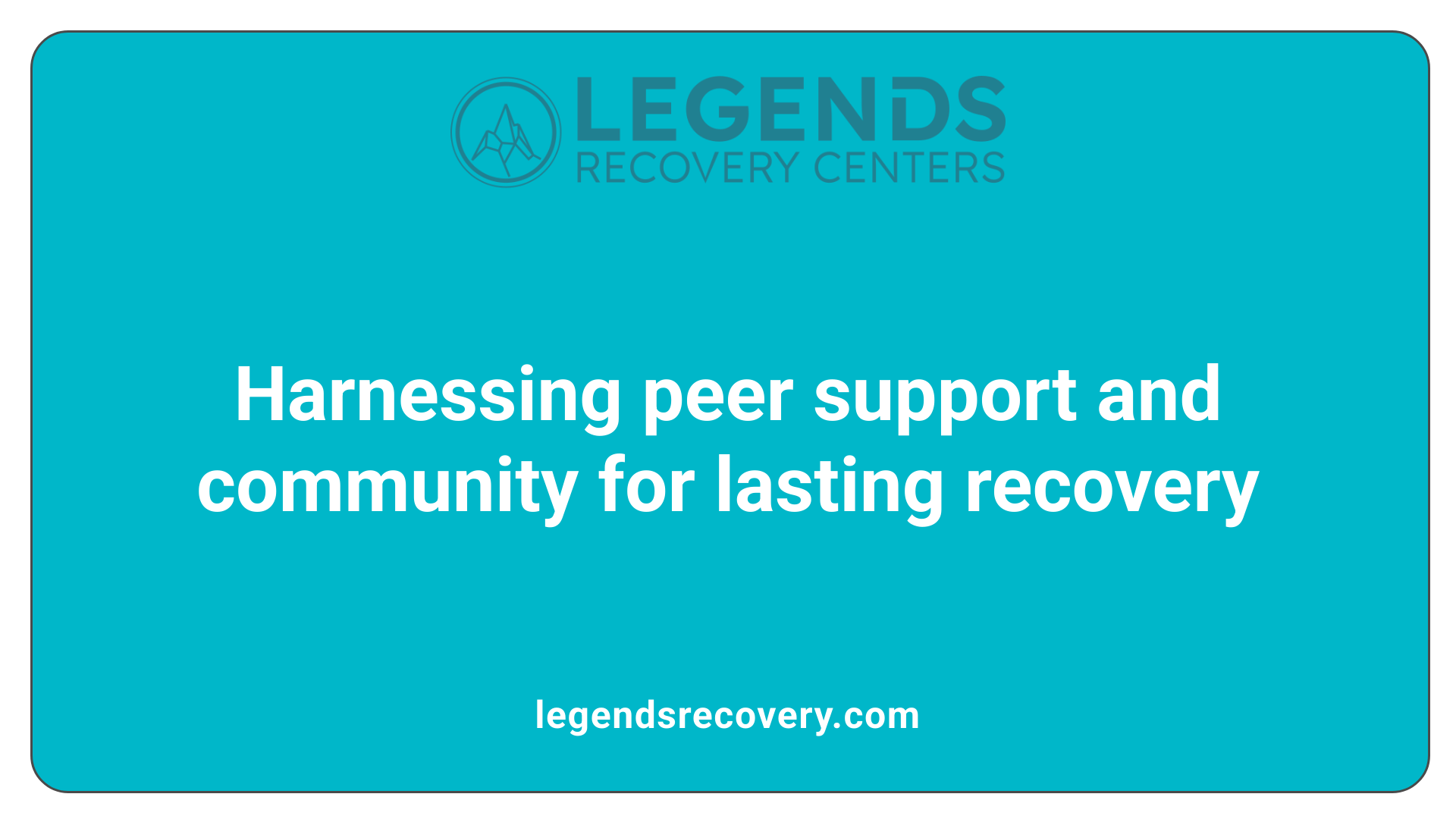Building Bridges to Long-Term Recovery: The Role of PHPs

Partial Hospitalization Programs (PHPs) serve as a pivotal component in the continuum of mental health and addiction treatment. Designed to offer structured, intensive care during the day while allowing patients to return home at night, PHPs create a unique environment that promotes stability, skill development, and ongoing recovery. This comprehensive overview explores how PHPs build a solid foundation for lasting recovery by integrating multidisciplinary care, holistic therapies, peer support, and seamless transitions between treatment levels.

Partial Hospitalization Programs (PHPs) are structured, outpatient treatment settings that serve as an intermediary step between inpatient hospitalization and less intensive outpatient care. These programs are designed to provide comprehensive and individualized therapy while allowing patients to return home each day.
Typically, PHPs involve a multidisciplinary team of mental health professionals, including psychiatrists, therapists, and social workers, who collaborate to create personalized treatment plans. Patients participate in daily or semi-daily therapy sessions, which may include individual counseling, group therapy, family therapy, and holistic therapies such as mindfulness, yoga, or art therapy.
The program's structure emphasizes symptom stabilization, medication management, psychoeducation, and skill development. Patients engage in life skills training such as emotional regulation, communication, and relapse prevention strategies. The daily schedule often combines therapy sessions with supportive activities aimed at fostering recovery, building resilience, and reducing the risk of hospitalization.
Regular assessment and close monitoring ensure that treatment remains tailored to individual progress and needs. Family involvement is also encouraged to support recovery at home. Overall, PHPs aim to deliver intensive, flexible, and goal-oriented care, helping patients regain stability and prepare for ongoing community-based recovery.
PHPs play a crucial role in the continuum of mental health and substance use treatment by providing a structured, supportive environment that eases the transition from inpatient hospitalization to outpatient services. This bridging function is vital for maintaining the progress achieved during inpatient stays while promoting greater independence.
During PHPs, clients continue receiving intensive therapy, medication management, and support for co-occurring disorders. They develop practical skills to manage daily stressors, triggers, and mental health symptoms, which are essential for long-term recovery. The daily structure of PHPs allows clients to experiment with applying coping strategies in real-life settings, with supervision and guidance from treatment teams.
By gradually reducing hospitalization reliance, PHPs help clients build confidence and stability outside of the hospital. This integrated approach ensures continuity of care, minimizes relapse risk, and prepares individuals for more independent outpatient treatment or full community reintegration. Overall, PHPs serve as an effective pathway for a safe and supported transition back into everyday life.

Partial hospitalization programs (PHPs) are essential components of mental health and addiction care because they serve as a critical bridge between inpatient hospitalization and outpatient therapy. They offer an intensive, structured environment that promotes stabilization of symptoms, adjustment of medications, and skill development—all without requiring continuous 24-hour supervision.
Through daily participation, clients benefit from consistent routines, therapeutic activities, and medical oversight, which collectively enhance emotional resilience and stability. These programs also foster community support through peer groups and therapy sessions, reducing feelings of isolation.
By tailoring treatment plans to individual needs, PHPs help prevent unnecessary hospitalization and aid in a smooth transition back into daily life. This continuity of care improves treatment outcomes, lowers the chances of relapse, and ultimately leads to better long-term recovery.
Overall, PHPs play a vital role in ensuring that individuals receive the right level of support at each stage of their recovery journey, promoting sustained mental health and addiction recovery.

Partial hospitalization programs (PHPs) utilize a variety of holistic and comprehensive approaches to support individuals on their path to recovery. These programs combine evidence-based therapies, such as individual therapy, group therapy, and family therapy, with medication management to address both mental health and substance use disorders.
A core component is the integration of holistic therapies. Patients participate in practices like mindfulness, yoga, art therapy, and music therapy. These activities help reduce stress, promote emotional regulation, and enhance overall well-being. Nutritional counseling and experiential activities are also incorporated to improve physical health and foster a sense of vitality.
PHPs prioritize treating the whole person, not just symptoms. They include skill-building workshops focused on emotional regulation, communication, and problem-solving. Psychoeducation about addiction, relapse prevention, and healthy lifestyle choices empowers clients with knowledge and tools for ongoing recovery.
Personalized treatment plans are central to PHPs. They are tailored based on thorough assessments and evolve with ongoing monitoring. This individualized approach ensures that therapy, holistic activities, and support services meet each person’s unique needs.
Family involvement is emphasized, recognizing its importance in recovery. Family therapy sessions help rebuild relationships, improve understanding, and create a supportive environment at home. Community reintegration efforts facilitate sustained social support beyond the program.
In summary, PHPs promote recovery through a blend of psychotherapy, holistic practices, life skills training, and community engagement, fostering resilience, autonomy, and long-term well-being.
Support systems in PHPs are designed to create a protective environment that sustains recovery and prevents relapse. These programs incorporate various therapeutic interventions such as individual, group, and family therapy, along with medication management when necessary.
Peer support plays a vital role. Support groups and shared experiences foster connection, reduce feelings of isolation, and promote empathy among participants. Building a support network helps individuals feel understood and motivated, which is crucial during challenging times.
Therapies like cognitive-behavioral therapy (CBT) and motivational interviewing (MI) are employed to develop strong coping skills. Clients learn to recognize triggers, manage cravings, and employ strategies to maintain sobriety and mental health.
Relapse prevention planning is an integral part of PHP treatment. Clients are taught to identify early warning signs and create personalized strategies to handle stressful situations or cravings. This proactive approach enhances their ability to sustain recovery long-term.
Additionally, ongoing engagement with community-based resources and support groups helps maintain a structured social network beyond the formal program. This continuity of care ensures individuals have access to help anytime they encounter setbacks.
Overall, PHPs foster a structured, supportive environment that emphasizes education, skill development, and social support, all aimed at long-term recovery and mental health stability.
| Therapy/Support Element | Purpose | Examples | Benefits |
|---|---|---|---|
| Individual Therapy | Personalized care | Cognitive Behavioral Therapy (CBT), Motivational Interviewing (MI) | Builds coping skills, addresses personal issues |
| Group Therapy | Peer learning and support | Skill development groups, psychoeducational groups | Reduces isolation, enhances social skills |
| Family Therapy | Rebuilds relationships | Family counseling sessions | Encourages home support, improves communication |
| Holistic Therapies | Whole-body well-being | Yoga, art, music therapy | Reduces stress, enhances emotional regulation |
| Medications Management | Symptom stabilization | Medication monitoring and adjustments | Supports mental health stability |
| Peer Support Networks | Support and community | Support groups, shared experiences | Promotes resilience, shared strategies |
| Aftercare Planning | Long-term support | Relapse prevention plans, ongoing counseling | Maintains gains, reduces relapse risk |
In conclusion, PHPs employ a diverse array of therapies and support systems to address the physical, emotional, and social facets of recovery. Their holistic approach not only aims to stabilize individuals during treatment but also prepares them for sustained well-being post-program.
Partial hospitalization programs (PHPs) employ a variety of support systems to foster long-term recovery and safeguard mental health. These programs combine different forms of therapy—such as individual, group, and family sessions—to create a comprehensive safety net for clients.
Support systems also include peer networks, which connect individuals with others sharing similar experiences. These networks encourage community engagement and help reduce feelings of isolation, which are common in recovery.
Behavioral therapies like cognitive-behavioral therapy (CBT), motivational interviewing (MI), and contingency management (CM) are fundamental. They teach clients practical skills to cope with triggers, manage cravings, and sustain behavior change.
Relapse prevention plans are central to PHPs. Clients learn to identify their personal triggers and develop strategies tailored to their needs, increasing their resilience against relapse.
Holistic activities such as yoga, meditation, and nutritional support further support mental well-being. These approaches help manage stress, improve mood, and promote overall health.
In summary, PHPs aim to create a structured, nurturing environment that combines clinical therapy, peer support, lifestyle changes, and relapse prevention to support sustained sobriety and mental health.

Peer support within Partial Hospitalization Programs (PHPs) plays a vital role in fostering a supportive environment that enhances recovery. These programs create spaces where individuals can openly share their experiences, struggles, and successes with others who understand their situation. This shared understanding diminishes feelings of isolation and stigma often associated with mental health and substance use issues.
Engaging in peer groups encourages open communication, mutual encouragement, and the exchange of practical coping strategies. Relationships built through these interactions often continue well beyond the duration of the program, forming enduring support networks. Such connections boost motivation, accountability, and confidence, which are crucial for maintaining sobriety and emotional stability over the long term.
The supportive nature of peer groups helps individuals develop resilience, learn diverse ways to handle challenges, and stay committed to their recovery goals. As part of a comprehensive treatment plan, peer support fosters an environment where individuals feel understood, valued, and motivated to pursue sustained wellness.
Community involvement is a core element of successful long-term recovery in PHPs. By actively participating in social, vocational, and recreational activities, individuals cultivate a sense of belonging and purpose. Such engagement helps reconnect individuals with community resources, such as support groups, educational classes, and volunteer opportunities.
Participation in sober living environments, community service, or skill-building workshops encourages the development of social skills and resilience. It also reinforces positive behaviors and promotes a sense of accountability to oneself and others.
Engaging with the community reduces feelings of loneliness and isolation, which can trigger relapse. It promotes stability by helping individuals build routines around healthy, sober activities. Overall, active community participation nurtures a supportive network that sustains motivation, reinforces recovery behaviors, and fosters a resilient, drug-free lifestyle.
To illustrate, the following table highlights the aspects of peer support and community engagement that contribute to recovery:
| Aspect | Description | Impact on Recovery |
|---|---|---|
| Shared Experiences | Sharing struggles and success stories among peers | Reduces stigma, promotes understanding |
| Mutual Support | Providing encouragement and motivation | Builds confidence and accountability |
| Enduring Relationships | Long-term support networks beyond programs | Offers ongoing emotional stability |
| Community Participation | Activities like volunteer work and support groups | Reinforces healthy routines, enhances social skills |
| Sense of Purpose | Engaging in meaningful activities | Promotes resilience and long-term commitment |
Engagement in a supportive community environment, along with peer connections, significantly boosts the chances of achieving and maintaining lasting recovery. These elements work together to create a foundation for sustainable wellness, empowering individuals on their journey to sobriety and mental health.
After completing a Partial Hospitalization Program (PHP), maintaining long-term recovery requires ongoing support and strategic planning. Successful recovery extends beyond the initial treatment phase, involving several continuous care elements.
Aftercare strategies often include tailored relapse prevention plans, ongoing therapy sessions, and participation in alumni support groups. These efforts help individuals stay committed to their recovery journey, reinforcing skills learned during PHP and addressing challenges as they arise.
Transition to outpatient care is a critical phase. This transition involves gradually reducing treatment intensity, ensuring continuity of care, and establishing a stable routine. Support from family, friends, and community resources can ease this shift, providing a reliable network for ongoing assistance.
Ongoing support mechanisms encompass community programs, vocational assistance, and sometimes medication management to address co-occurring mental health conditions. Regular interactions with mental health professionals through follow-up appointments and participation in peer support groups help people stay connected, motivated, and accountable.
These comprehensive support systems create a safety net. They help individuals manage triggers, cope with stress, and navigate daily life, significantly reducing the risk of relapse. The combination of personalized plans, social support, and continuous professional guidance creates a strong foundation for sustained recovery.
Participation in a Partial Hospitalization Program (PHP) offers numerous advantages for maintaining long-term sobriety and mental health. The structured environment provides consistent support, helping individuals stabilize their symptoms and develop vital coping skills. Personalized treatment plans, which include therapy, medication management, and holistic therapies like yoga and art therapy, address each person's unique needs.
One major benefit is flexibility — PHPs allow clients to attend treatment during the day while returning home at night. This balance supports ongoing responsibilities such as work or family, facilitating a smoother reintegration into daily life.
Peer support is another cornerstone of PHPs. Sharing experiences builds confidence, reduces feelings of isolation, and fosters resilience. These programs also educate participants on relapse prevention, equipping them with strategies to identify triggers and maintain sobriety.
Overall, PHPs bolster recovery by promoting emotional growth, life skills development, and supportive community connections, setting a strong foundation for sustained mental health and addiction management.”}
PHPs play a vital role in the continuum of care for individuals battling addiction and mental health issues. They serve as a critical bridge, easing transitions from inpatient hospital stays or intensive outpatient programs to independent living and ongoing outpatient treatment.
Their comprehensive approach addresses medical needs, co-occurring mental health conditions, and psychosocial factors. By providing a structured yet flexible environment, PHPs help clients regain emotional stability, develop relapse prevention skills, and rebuild confidence.
The importance of PHPs also lies in their ability to reduce hospital readmissions and lower healthcare costs while improving overall recovery outcomes. With a multidisciplinary team of healthcare professionals, these programs tailor care to each individual—integrating therapies like CBT, DBT, family involvement, and holistic activities.
In summary, PHPs are invaluable because they foster resilience, community, and long-term independence, creating a lasting foundation for individuals striving toward wellness and sobriety.
Partial Hospitalization Programs (PHPs) serve as a vital component in modern mental health and addiction treatment, strategically bridging inpatient and outpatient care. Their structured, multidimensional approach addresses the immediate needs of stabilization while equipping individuals with skills, support networks, and holistic strategies essential for sustaining long-term recovery. With personalized care plans, multidisciplinary teams, peer and community support, and a focus on continuity and relapse prevention, PHPs lay a resilient foundation that empowers individuals to rebuild their lives and maintain wellness beyond the treatment environment. Recognizing the importance of PHPs within the broader continuum of care underscores their role in fostering enduring recovery, resilience, and hope.